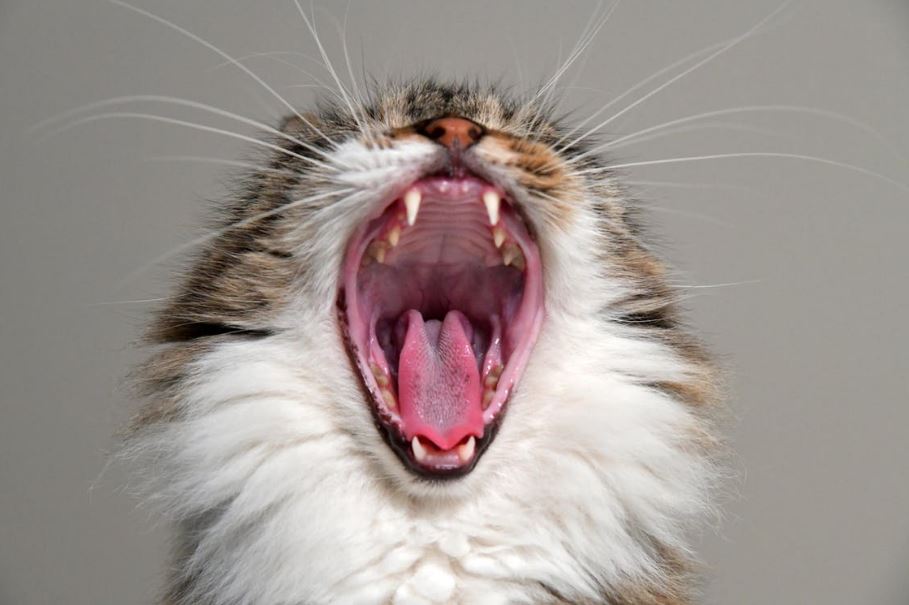Like humans, cats need a good dental maintenance routine starting at a young age to ensure their sound overall health. Without proper care, they can quickly develop diseases, resulting in pain and discomfort and significantly affecting their lives.
Reports show that around 50 to 90% of cats aged over four already suffer from a form of dental illness. That is why you need to be proactive with your cat’s dental care, given that most diseases are largely preventable and treatable. To help you out, here are the best tips for caring for your cat’s teeth, keeping her healthy and happy.
1. Never ignore symptoms.
Cats mastered the art of hiding pain. If you don’t pay close attention, it’s easy to miss minor signs that she is hurting or needs help. Always have your cat’s teeth checked out for any symptoms, as your cat usually won’t show any discomfort until it’s severe.
One of the strongest indicators is your cat’s breath. A mild fishy scent is typical, but if it goes beyond smelling fairly neutral, it can signify that she has a dental problem like tooth decay and gum disease. If left untreated, your cat’s breath and dental condition are just going to go worse. Other signs of feline dental disease you should look at include:
- Tooth discoloration
- Visible tartar
- Red, swollen, and bleeding gums
- Drooling
- Exposed tooth roots
- Changes in appetite or eating habits
- Weight loss
- Pawing mouth or teeth
- Less grooming
Remember, dental diseases have been associated with kidney disease, heart disease, and other serious chronic illnesses. Spotting any symptoms and treating any condition as early as possible is an excellent way to maintain your cat’s total wellness.
2. Get your cat an annual dental check-up.
You know how important it is to visit your dentist regularly. The same goes for your cat, needing to undergo annual dental checkups. While you may spot symptoms yourself, veterinarians are more thorough and proficient in checking a cat’s teeth, gums, and mouth. What’s great is that they can also share other specific valuable advice fit for your cat’s dental health needs. So, never miss the dental check-up on your cat’s yearly visit to the vet to evaluate your cat’s oral and overall health.
3. Brush your cat’s teeth regularly.
Daily brushing is the best way to prevent feline dental disease. If your schedule won’t fit, brushing at least three times a week will suffice. Be mindful that it’s best to develop a brushing routine while she is still a kitten, as adult cats are more resistant. Using chicken, beef, or seafood-flavored toothpaste will most likely make a cat more accepting of the activity. Don’t forget their gums, either. You can stimulate it by massaging it using your finger. By doing so, you accelerate any healing process and strengthen their gums better.
4. Ask your veterinarian for dental diets specific to cats.
Diet plays a vital role in battling dental disease among cats. Providing them with the well-balanced and best appropriate food will not only keep their bodies healthy, help them fight off diseases but aid in their dental health as well. That’s why it is crucial to seek assistance from the veterinarian in determining what diet will work for your cat.
If your cat already has oral health or dental issues, your vet will prescribe specific diets that are intended and clinically proven to improve her dental wellness.
For instance, dry food provides dental benefits by allowing mechanical cleaning of your cat’s teeth. These dry food items come in special textures and shapes that ensure a better contact with your cat’s teeth, facilitating oral cleaning by controlling plaque and tartar.
Wet food is high in protein and other nourishments, but you can’t rely on them alone. If your cat consumes wet food all the time, there would be no physical contact, which can lead to loose teeth and gingivitis in the long run. Usually, the right mix of dry and wet food is advised to reap all the maximum benefits.
5. Provide dental treats and chews.
Dental treats and chews aren’t merely for rewarding your cat after doing well in potty training or learning to eat in her food pot. They are also good for your cat’s dental health, as well. Like dry food, they scrub your cat’s teeth as she chews and prevents tartar and plaque build-up. Vet-approved dental treats and chew also contain specific ingredients, vitamins, and minerals that can keep your cat’s breath smelling fresh.
Just be mindful that giving these should be done in moderation. You can also rely on providing dental and chews alone, and it can’t replace regular teeth brushing and a healthy diet. Dental treats and chews are more of a valuable supplement to your cat’s dental care program.
6. Use water additives.
Another useful addition to your cat’s dental hygiene is using water additives. These are safe, tasteless, and odorless concentrated solutions with plaque-fighting ingredients. Pour and dilute in their water bowl, and the formula will help minimize bacteria, promote healthy gums and teeth, and fight bad breath. Alternatively, you may use the solution as a food topper. They are ideal for cats who resist frequent brushing.
7. Toys help, too.
Cats are natural predators. Their big cat counterparts eat other animals and have a natural diet consisting of hard bones. Thus, helping remove tartar and keep their gums and teeth healthy. Your domestic cat is most likely eating at least mice to have the same effect. With that, veterinarians advise providing them hard toys to chew instead. These toys shouldn’t be too hard as they can fracture their teeth. Look for toys specifically designed for cats, usually only as hard as your fingernail.
Final Thoughts
By following these dental care tips, you can keep your cat’s dental health in tip-top condition, extend her happiness, and improve her ability to fight off disease. Perform all steps properly and stay consistent, so you can give your cat a part of the overall care she deserves.

